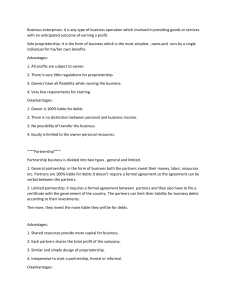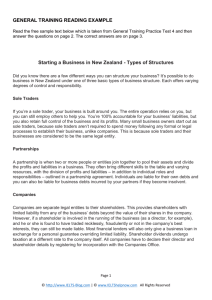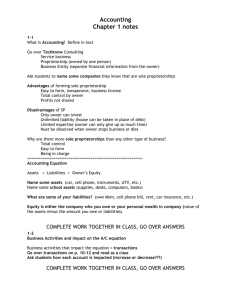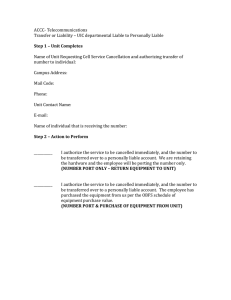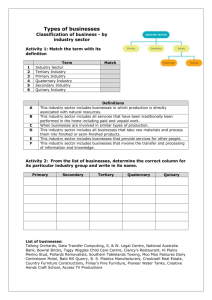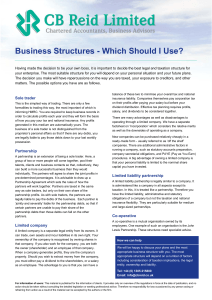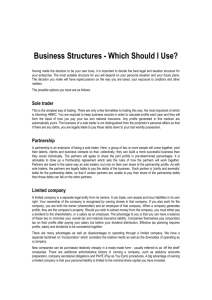ARE YOU STARTING A NEW BUSINESS AND TRYING TO DECIDE
advertisement
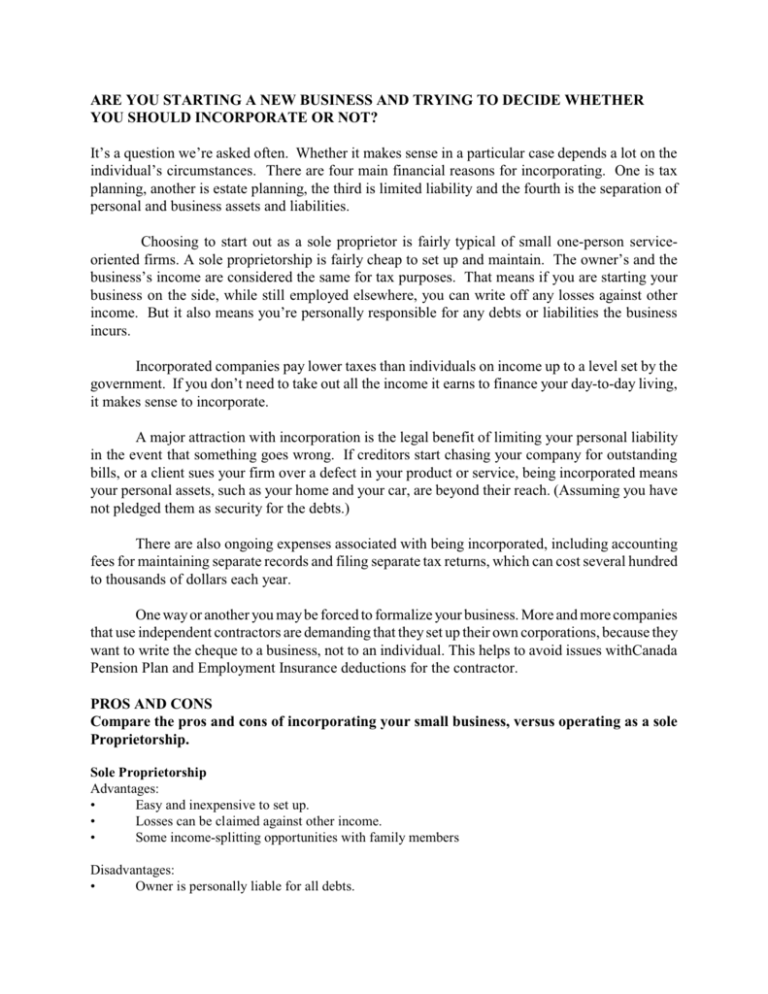
ARE YOU STARTING A NEW BUSINESS AND TRYING TO DECIDE WHETHER YOU SHOULD INCORPORATE OR NOT? It’s a question we’re asked often. Whether it makes sense in a particular case depends a lot on the individual’s circumstances. There are four main financial reasons for incorporating. One is tax planning, another is estate planning, the third is limited liability and the fourth is the separation of personal and business assets and liabilities. Choosing to start out as a sole proprietor is fairly typical of small one-person serviceoriented firms. A sole proprietorship is fairly cheap to set up and maintain. The owner’s and the business’s income are considered the same for tax purposes. That means if you are starting your business on the side, while still employed elsewhere, you can write off any losses against other income. But it also means you’re personally responsible for any debts or liabilities the business incurs. Incorporated companies pay lower taxes than individuals on income up to a level set by the government. If you don’t need to take out all the income it earns to finance your day-to-day living, it makes sense to incorporate. A major attraction with incorporation is the legal benefit of limiting your personal liability in the event that something goes wrong. If creditors start chasing your company for outstanding bills, or a client sues your firm over a defect in your product or service, being incorporated means your personal assets, such as your home and your car, are beyond their reach. (Assuming you have not pledged them as security for the debts.) There are also ongoing expenses associated with being incorporated, including accounting fees for maintaining separate records and filing separate tax returns, which can cost several hundred to thousands of dollars each year. One way or another you may be forced to formalize your business. More and more companies that use independent contractors are demanding that they set up their own corporations, because they want to write the cheque to a business, not to an individual. This helps to avoid issues withCanada Pension Plan and Employment Insurance deductions for the contractor. PROS AND CONS Compare the pros and cons of incorporating your small business, versus operating as a sole Proprietorship. Sole Proprietorship Advantages: • Easy and inexpensive to set up. • Losses can be claimed against other income. • Some income-splitting opportunities with family members Disadvantages: • Owner is personally liable for all debts. • • • Harder to raise capital. Some government programs available only to incorporated firms. If the business fails, owner can’t collect unemployment insurance benefits. Incorporation Advantages: • Shareholders are not normally personally liable for business debts or legal liabilities. • Income-splitting opportunities with Family members • More financing options. Disadvantages: • Directors can be held personally liable. • Cost of incorporating plus annual expenses of filing separate financial statements and tax returns.
